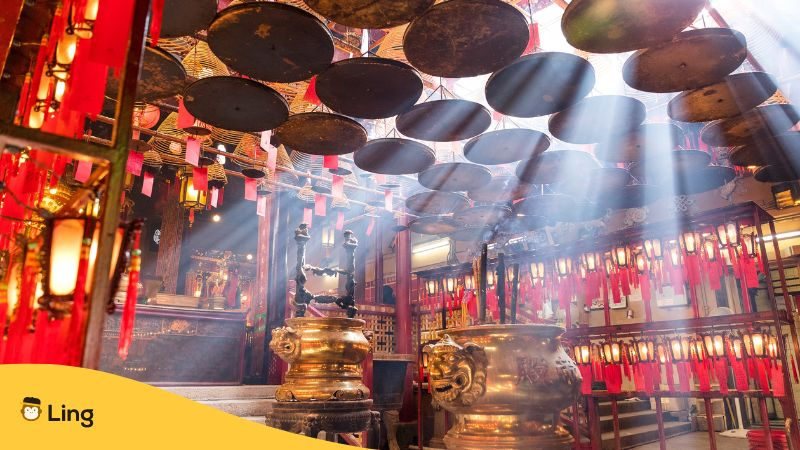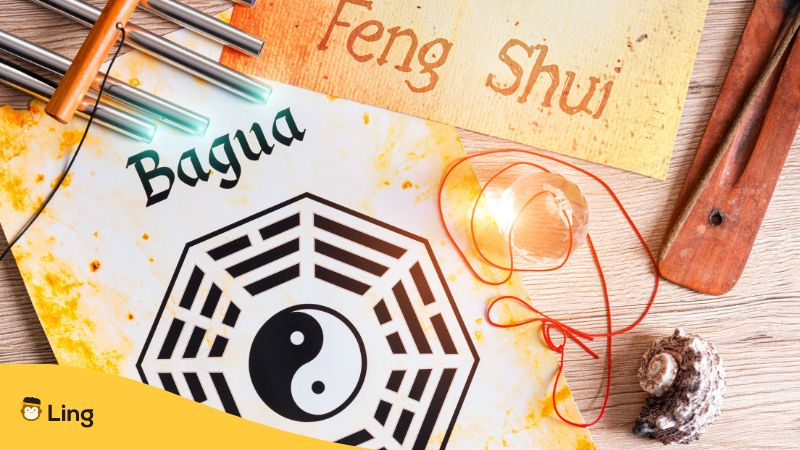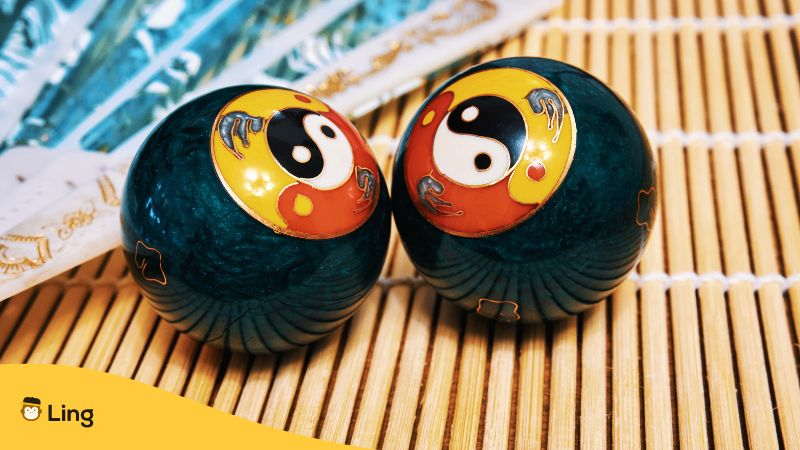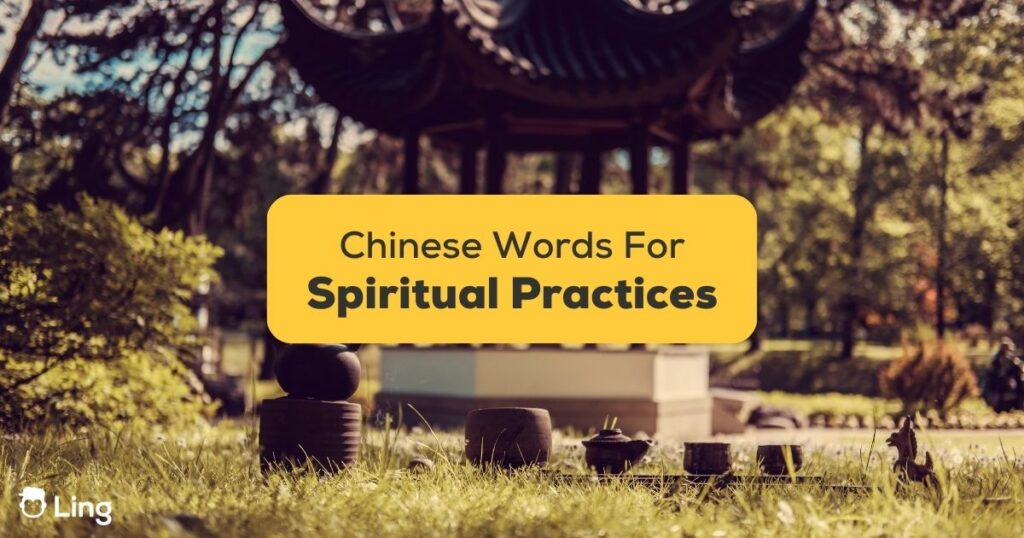Step into the captivating world of Chinese words for spiritual practices and unlock ancient secrets that have guided generations for millennia! In the rich tapestry of the Chinese language, words go beyond mere communication – they’re vessels of profound wisdom, carrying the essence of spiritual enlightenment, mindfulness, and inner peace. In this post, we’ll explore characters like “Dao” (道), “Qi” (氣), and “Zen” (禪) as they encapsulate entire philosophies and practices that have shaped countless hearts and minds. Ready? Join us on a journey of self-discovery and enlightenment as we unveil the beauty and wisdom concealed within Chinese characters for spiritual practices.
Understanding Spiritual Practices In China
Before heading to words for spiritual practices or “精神实践” (jīngshén shíjiàn), you must first learn that China’s spiritual landscape is a mesmerizing mosaic intricately woven into its rich cultural and historical tapestry.
At its core, Confucianism stands as an unwavering beacon, extolling the virtues of moral integrity, familial reverence, and the cultivation of goodness, paving the way towards societal harmony. In stark contrast, Taoism beckons wanderers to synchronize with the rhythmic dance of the Tao, embracing unity with the cosmos through simplicity and spontaneous living. Buddhism, a precious gift from India, has left an indelible mark on China’s spiritual identity, championing enlightenment and compassion as its guiding stars.
Amidst these philosophical constellations, traditional Chinese folk beliefs, such as the venerable rituals of ancestor worship and the profound reverence for nature spirits, thrive, adding intricate layers of meaning to China’s spiritual fabric. This vibrant fusion testifies to China’s remarkable capacity to seamlessly blend age-old wisdom with the pulse of modern life, an ever-evolving testament to its profound spiritual diversity.

Chinese Words For Spiritual Practices
Whether you seek harmony in the chaos of modern life or simply yearn to explore the profound depths of the human spirit, these Chinese words will serve as your gateway to a world where the pursuit of spiritual growth transcends borders and resonates with the very core of our shared human experience.
Tao (道) – The Way
Tao, the mystical essence underlying all existence, is often likened to the cosmic Way, urging us to harmonize with nature’s rhythm. In the heart of China’s spiritual landscape, Taoism guides seekers towards unity with the Tao, championing simplicity, spontaneity, and self-reflection as the pathways to inner balance and enlightenment.
Qi (氣) – Life Force Energy
Qi is the vital life force that flows through all living beings. Often described as a subtle energy, it’s believed that balancing and cultivating Qi within the body through practices like Tai Chi and Qigong can enhance physical health, mental clarity, and spiritual well-being. This profound connection between Qi and the self forms a cornerstone of traditional Chinese medicine and holistic wellness.
Meditation (冥想) – The Path To Inner Peace
Meditation or “冥想” (míngxiǎng) is a transformative journey of inner exploration. Rooted in ancient traditions like Daoist and Buddhist meditation, it offers a path to still the mind, cultivate mindfulness, and attain spiritual insight. Through focused breathing, visualization, and mindfulness techniques, practitioners seek harmony, balance, and a deeper connection with the self and the cosmos.
Yin And Yang (阴阳) – Balance And Harmony
Yin and yang symbolize the dualistic forces that shape the universe. They embody the idea that opposing yet complementary energies are in constant flux, creating harmony through their interplay. This ancient concept guides practices like acupuncture, Tai Chi, and Feng Shui, aiming to balance these energies within individuals and their surroundings for optimal health and spiritual alignment.
Zazen (坐禅) – Zen Meditation
Zazen, rooted in the Zen Buddhist tradition, is a profound form of meditation that emphasizes seated meditation in stillness and silence. Practiced to attain deep insight and enlightenment, it invites individuals to cultivate mindfulness, release attachments, and experience the present moment with clarity and profound awareness.
Gong (功) – Cultivation
This refers to the cultivation of one’s vital energy or life force. Through methods like Qigong and Neigong, practitioners harness and refine their “gong” to enhance physical health, mental clarity, and spiritual well-being, fostering a profound connection between the mind, body, and spirit.
Feng Shui (风水) – Environmental Balance
Feng Shui, a time-honored Chinese practice, is the art of harmonizing one’s environment to optimize the flow of energy, or “Qi.” It involves arranging spaces in a way that promotes balance and positive energy, impacting not only physical surroundings but also the well-being and fortune of those who inhabit them.
Tai Chi (太极) – The Supreme Ultimate
Tai Chi, often called a “moving meditation,” is a Chinese martial art and spiritual practice that combines graceful, flowing movements with focused breathing and mindfulness. Practiced for centuries, it aims to cultivate inner harmony, reduce stress, and promote physical and mental well-being through the seamless integration of body and spirit.
Mantra (咒语) – Sacred Sound
A mantra is a sacred sound or phrase repeated rhythmically to focus the mind and connect with the divine. These powerful vibrations are believed to invoke spiritual energy, enhance meditation, and promote inner transformation, playing a significant role in various forms of Chinese Buddhism and Taoism.
Chakra (脉轮) – Energy Centers
This is not commonly associated with traditional Chinese belief systems. Chakras are more commonly associated with Indian spiritual traditions, such as Hinduism and Buddhism, where they represent energy centers within the body. Chinese spirituality typically focuses on concepts like Qi, Yin and Yang, and the meridian system in traditional Chinese medicine, which are distinct from the chakra system.
Incense (香) – Aromatic Offerings
Incense or “香” (xiāng) holds a significant role as a symbol of purification and a means to connect with the divine. Burning incense is a timeless ritual that invokes a sense of sacredness and mindfulness, often accompanying meditation, prayer, or other spiritual ceremonies in China.

Other Spiritual Practices-Related Words
Exploring these hidden gems of Chinese spiritual vocabulary will open new doors to understanding ancient wisdom and enhancing your spiritual journey.
| English | Chinese | Translation |
|---|---|---|
| Taoism | 道教 | Dàojiào |
| Buddhism | 佛教 | Fójiào |
| Confucianism | 儒家 | Rújiā |
| Zen | 禅宗 | Chánzōng |
| Qi Gong | 气功 | Qìgōng |
| Tai Chi | 太极 | Tàijí |
| Enlightenment | 觉悟 | Juéwù |
| Karma | 因果报应 | Yīn guǒ bàoyìng |
| Mandala | 曼陀罗 | Màntuóluó |
| Bodhisattva | 菩萨 | Púsà |
| Sutra | 经文 | Jīngwén |
| Mudra | 手印 | Shǒuyìn |
| Pilgrimage | 朝圣 | Cháoshèng |

Level Up Your Chinese Language Skills With Ling
Enjoyed this post? Learn more about this Asian language with Ling! The Ling app is perfect for anyone who wants to master Chinese and 60+ other languages. With its comprehensive range of lessons, it’s impossible not to learn something new within 10 minutes of using the app! Don’t believe me? Give it a try today by downloading Ling from the App Store or Google Play Store, and let the adventure begin!



































































